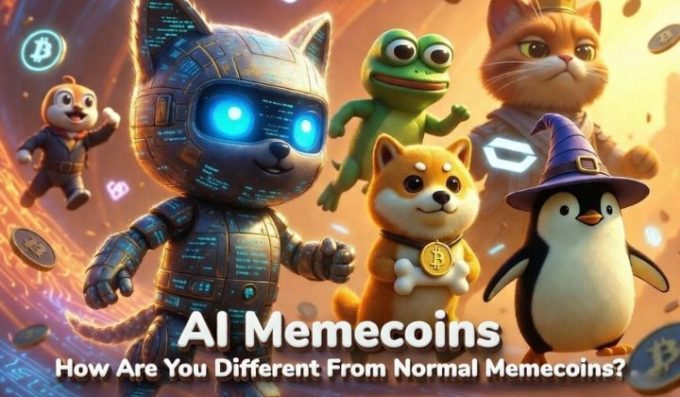A New Era in Gaming: ‘Minecraft’ Clone Is Generated by AI in Real-Time
By Shikha Singh
A nostalgic sentiment has emerged among players who reminisce about their experiences in Minecraft. Many recall the sense of endless possibility, the excitement of constructing their own worlds, and the enjoyment of exploring a blocky universe. Etched, a bold new startup, has officially launched a product that promises to elevate nostalgia to unprecedented heights.
Drawing inspiration from the open-world chaos of Minecraft and the digital utopia depicted in Ernest Cline’s renowned sci-fi novel, Oasis provides players with the ability to create and dismantle entire virtual worlds in real-time. A pixelated universe has emerged, allowing users to move blocks, construct entire cities, or even collapse mountains with a simple flick of the wrist, all thanks to advanced artificial intelligence technology.
The most notable aspect is that Real-time developments are unfolding without the constraints of a game engine. In a collaboration with Decart, an innovative AI laboratory based in San Francisco, Etched has developed what is being described as the first playable game generated by artificial intelligence. A recent development in artificial intelligence demonstrates its capabilities beyond merely composing essays or responding to inquiries. This innovation showcases the potential for AI to construct entire worlds, piece by piece, in real-time as users engage with the experience.
Oasis operates on a unique premise, utilizing artificial intelligence rather than conventional graphics engines. This innovative approach allows the game to generate every pixel and element of its expansive world in real-time as players embark on their explorations. It resembles the experience of playing Minecraft, with the added twist of the computer autonomously thinking and crafting the world in real-time, generating unexpected surprises along the way.
Robert Wachen, a Harvard graduate, and Dean Leitersdorf, an alumnus of the Israel Institute of Technology, have joined forces to create Etched and Decart, the innovative minds behind this cosmic game of digital legos. In 2022, Wachen and Leitersdorf united after being impressed by the capabilities of OpenAI’s GPT-3.
Since then, a powerhouse of hardware and AI tools has been built to power Oasis, with Etched laying the hardware foundation and Decart crafting the AI wizardry that drives it.
Last week, the demo reached X, and the response was overwhelmingly positive. The servers faced significant strain due to an overwhelming surge of interest, as hundreds of thousands of individuals flocked to explore the site. Currently classified as a “research demo” with no monetization, which means it is entirely free, Etched is already planning for the future. The company aims to develop this technology into something more substantial over time.
Currently, Oasis operates using Nvidia’s advanced H100 Tensor Core GPUs; however, Etched has aspirations for even greater advancements. A new chip is being developed by the company, Sohu, which is claimed to be several times faster than Nvidia’s leading hardware. Setting the bar high has become a notable topic of discussion.
In a few months, the future remains uncertain. A new game is rumored to be in development, potentially surpassing the wildness of Oasis. The future of gaming has taken a significant turn towards excitement, signaling that this is merely the beginning of what lies ahead.A new development in the gaming industry has emerged as an AI-generated clone of ‘Minecraft’ is now being created in real-time. This innovation marks a significant shift in how games can be developed and experienced by players.
A nostalgic sentiment has emerged among players who reminisce about the early days of Minecraft. Many express a longing for the sense of endless possibility, the excitement of constructing their own worlds, and the enjoyment of exploring the expansive blocky universe. Etched, a bold new startup, has officially launched a product that promises to elevate nostalgia to unprecedented heights.
Inspired by the open-world chaos of Minecraft and the digital utopia from Ernest Cline’s legendary sci-fi novel, Oasis allows players to create and destroy entire virtual worlds in real-time. A pixelated universe has emerged, allowing users to move blocks, construct entire cities, or collapse mountains with a simple flick of the wrist, all driven by advanced AI technology.
One of the most notable aspects is the exceptional quality. Real-time developments are unfolding, unimpeded by any game engine constraints. In collaboration with Decart, an innovative AI lab based in San Francisco, Etched has developed what is being referred to as the first playable AI-generated game. A recent development in artificial intelligence demonstrates its capabilities beyond traditional tasks such as essay writing or answering questions. This innovation allows users to construct entire worlds, block by block, in real-time as they engage with the platform.
The innovative approach of Oasis is both straightforward and extraordinary. Rather than relying on conventional graphics engines, the game operates entirely on artificial intelligence, creating every pixel and element of the world as players embark on their exploration. It resembles the experience of playing Minecraft, with the added element of the computer actively thinking and crafting the world in real-time, generating unexpected surprises along the way.
Robert Wachen, a Harvard graduate, and Dean Leitersdorf, an alumnus of the Israel Institute of Technology, have come together to create Etched and Decart, the innovative minds behind this cosmic game of digital legos. In 2022, Wachen and Leitersdorf united after being impressed by the capabilities of OpenAI’s GPT-3.
Since then, a powerhouse of hardware and AI tools has been built to power Oasis, with Etched laying the hardware foundation and Decart crafting the AI wizardry that drives it.
Last week, the demo reached X, and the reaction was overwhelming. The servers experienced significant strain due to an overwhelming surge of interest, as hundreds of thousands of individuals flocked to explore the site. Currently operating as a “research demo” with no monetization, Etched is providing its services free of charge. However, the company is already planning for the future, with aspirations to develop this technology into a more substantial offering.
Currently, Oasis operates using Nvidia’s advanced H100 Tensor Core GPUs, while Etched envisions even greater ambitions. A new chip is being developed by the company Sohu, which claims it will be several times faster than Nvidia’s leading hardware. Setting the bar high has become a notable topic of discussion.
In a few months, uncertainty looms. A game that could surpass the craziness of Oasis may soon be released. The future of gaming has taken a significant turn towards excitement, marking the beginning of a new era.
You need to login in order to Like













